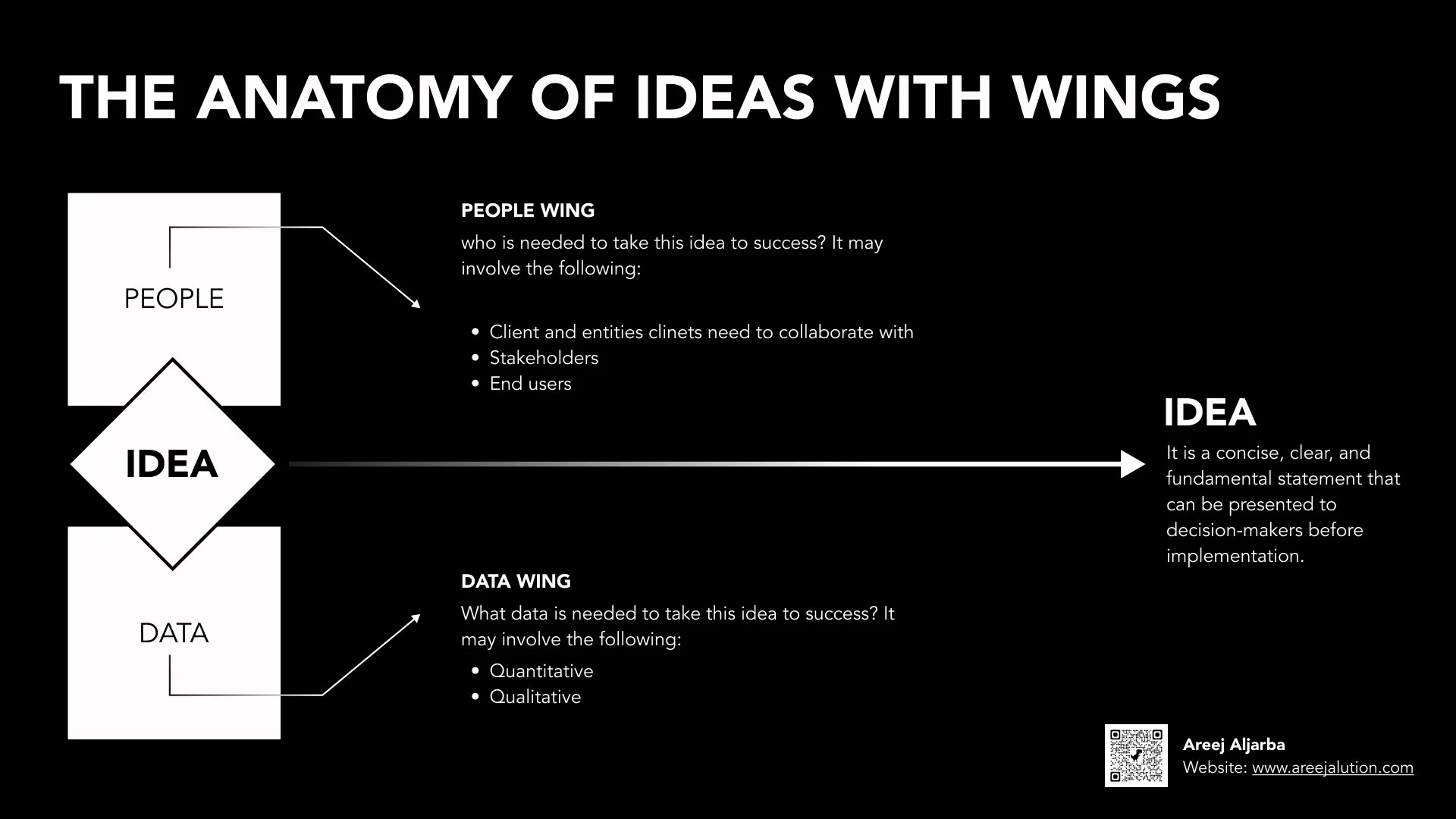Ideas with Wings — Workshop Technique Edition Release 1
A while back, when I worked in Siemens, Saudi Arabia, I hosted an internal design thinking workshop for a group of senior experts. The objective was to brainstorm solutions for a coming meeting with an important client.
The subject, domain, and industry were new to me, so naturally, it was hard for me to keep up with all the ideas and their details. While brainstorming for the “How Might We” question, I found myself sticking a larger two sticky notes to the main small one. In the first sticky note, I documented all people who must be involved in this idea to happen. In the second one, I kept track of all quantitative and qualitative data needed for this idea. Later, I called this technique, Ideas with wings.
The anatomy of Ideas With Wings
The Anatomy of Ideas with wings
Idea Body: What is the idea? It is a concise, clear, and fundamental statement that can be presented to decision-makers before implementation.
People Wing: who is needed to take this idea to success? It may involve the following:
Client and entities they need to collaborate with
Stakeholders (direct/indirect, Primary/Secondary)
End users
Data Wing: what data is needed to take this idea to success? It may involve the following:
Quantitative
Qualitative
When is this useful?
This technique is beneficial for a vague idea statement due to the complexity and inaccessibility of info. These are the following context where I found this technique helpful:
Dealing with complex ideas
Dealing with clients who need to collaborate with different entities, e.g., government ministries or committees that need other ministries and/or committees for data and integrations
Dealing with an expert audience
Dealing with an audience of mixed backgrounds and expertise
Dealing with ideas in unfamiliar domains\industries to facilitator and audience
Finally, this is a simple technique that I found beneficial in the proper context, and I am sharing it with you in hopes it might be to you, too, in your workshop facilitation.
